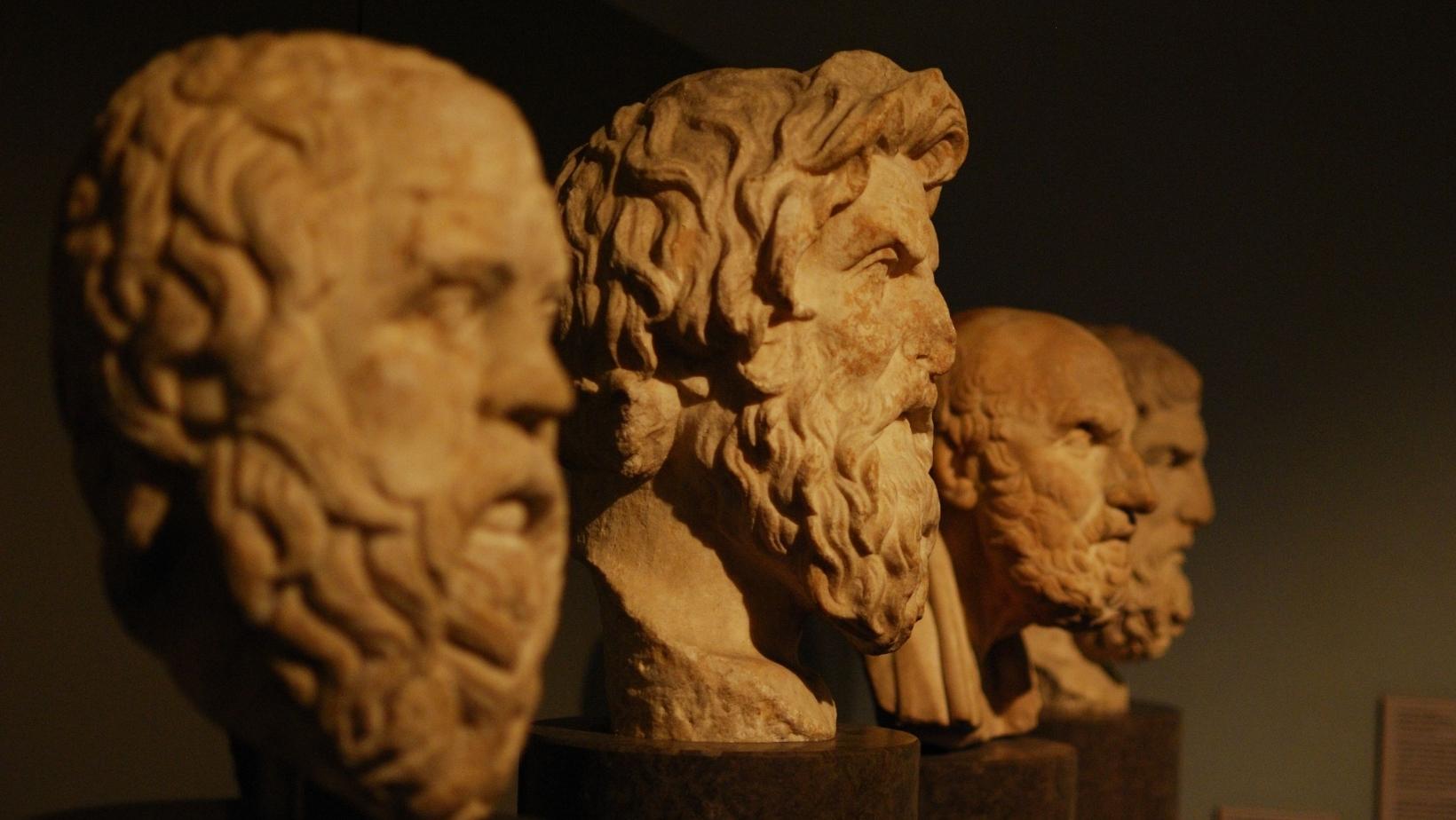When examining the philosophical giants of ancient Greece, namely Socrates, Plato, and Aristotle, it becomes evident that they are interconnected yet distinct in their own ways. These influential thinkers have shaped Western philosophy and left a lasting impact on various fields of study.
Let’s start with Socrates, the revered mentor of Plato. Known for his Socratic method, he believed in seeking truth through questioning and dialogue. His emphasis on self-knowledge and critical thinking laid the foundation for future philosophical inquiry. While Socrates did not leave behind any written works himself, his ideas were preserved through the writings of his student, Plato.
Plato expanded upon Socrates’ teachings by delving into metaphysics and epistemology. He established the Academy in Athens and authored numerous dialogues where he presented his theories about forms or ideal concepts that exist beyond the material world. For Plato, knowledge was innate within the soul and could be accessed through intellectual contemplation.
Aristotle, a student of Plato’s Academy, took a more empirical approach to understanding reality. He focused on observation and analysis to gain knowledge about the natural world. Aristotle categorized knowledge into different branches such as logic, physics, ethics, politics, and metaphysics. Unlike Plato’s theory of forms, Aristotle believed that true knowledge could be acquired through sensory experience.
What Are the Similarities and Differences Between Socrates, Plato, and Aristotle?
When examining the similarities between Socrates, Plato, and Aristotle, it becomes evident that these three influential philosophers share some common ground while also diverging in their ideas. Let’s delve into the key resemblances that connect these intellectual giants.
- Philosophical Foundation: All three thinkers laid the groundwork for Western philosophy and greatly influenced subsequent philosophical movements. They sought to understand fundamental questions about knowledge, ethics, and the nature of reality.
- Teacher-Student Relationship: Socrates was Plato’s mentor, and Plato, in turn, taught Aristotle. This interconnected lineage highlights a significant connection between them. Each philosopher built upon the teachings of their predecessor while adding their own unique insights.
- Intellectual Methodology: Socrates, Plato, and Aristotle all employed dialectic reasoning as a means to arrive at truth. They engaged in rigorous questioning and dialogue to challenge assumptions and uncover deeper understanding.
- Focus on Ethics: Ethics played a central role in the philosophies of all three thinkers. They sought to discern what constitutes virtuous behavior and how individuals should live a good life within society.
- Influence on Politics: Plato delved extensively into political theory through his work “The Republic,” proposing an ideal state governed by philosopher-kings who possess wisdom and virtue. Similarly, Aristotle explored various forms of government in his famous treatise “Politics.”

Differences between Socrates, Plato, and Aristotle
When it comes to exploring the differences among the great philosophers Socrates, Plato, and Aristotle, there are several key aspects that set them apart. Let’s delve into these disparities and uncover what makes each of them unique:
- Philosophical Approach:
- Socrates: Known as the father of Western philosophy, Socrates was primarily concerned with ethical inquiries and moral philosophy. He focused on questioning others’ beliefs through his famous Socratic method.
- Plato: Plato was a student of Socrates and went on to develop his own philosophical system. He delved into topics such as metaphysics, epistemology, and political theory. His writings often took the form of dialogues featuring his mentor as a central character.
- Aristotle: A student of Plato himself, Aristotle had a more empirical approach to philosophy. He emphasized observation and logical reasoning in his investigations. Aristotle covered an extensive range of subjects including ethics, biology, physics, politics, and more.
- Views on Knowledge:
- Socrates: For Socrates, true knowledge lay in recognizing one’s own ignorance. He believed that by questioning assumptions and engaging in critical thinking, individuals could reach a deeper understanding.
- Plato: Building upon his teacher’s ideas, Plato posited that knowledge is innate within the soul but obscured by worldly distractions. He argued for the existence of an ideal realm where perfect forms exist independently from their imperfect manifestations in reality.
- Aristotle: In contrast to both Socrates and Plato, Aristotle viewed knowledge as derived from sensory experiences coupled with rational analysis. He believed that knowledge could be acquired through careful observation of the natural world.
- Political Philosophy:
- Socrates: Despite not leaving any written works behind himself (his teachings were primarily passed down through the writings of others like Plato), Socrates was known for challenging traditional Athenian democracy at times by advocating for the rule of philosopher-kings.
- Plato: Plato’s political philosophy can be best understood through his famous work, “The Republic.” He proposed an ideal city-state governed by philosopher-kings who possess wisdom and a deep understanding of justice.
- Aristotle: Aristotle’s political philosophy focused on finding the optimal balance in governance. He believed in a constitutional government where power is shared among various classes, advocating for moderation and avoiding extremes.
These are just a few of the notable differences between Socrates, Plato, and Aristotle. It’s fascinating to witness how these great minds approached philosophical inquiry from different angles, leaving behind rich legacies that continue to shape our understanding of the world today.


